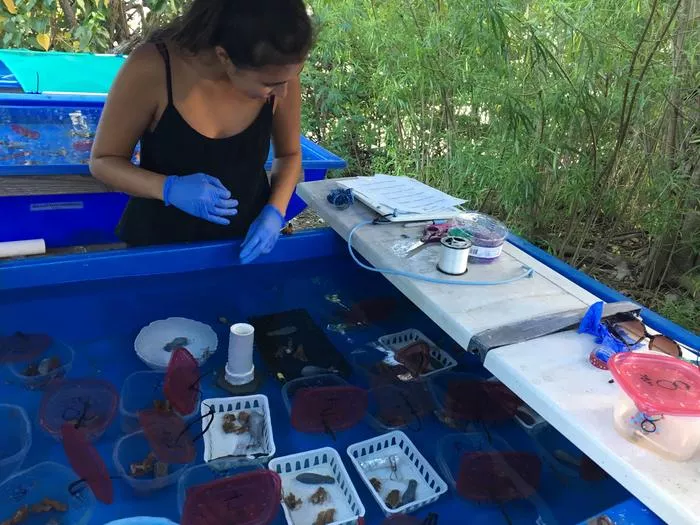Coral growth depends on type of symbiotic algae they associate with
A study reveals an interesting tradeoff in coral growth taking place, based on the type of symbiotic algae they host.
Scientists discover a surprising tradeoff in coral growth linked to the symbiotic algae they host. The research sheds light on the delicate balance that corals strike in adapting to rising ocean temperatures.
Corals derive much of their energy from the algae living within their soft tissue, and it appears that some symbiotic algae species help corals withstand warmer water better than others.
Heat-tolerant vs heat-sensitive algae
The study, which took place over two months, focussed on whether rice corals hosting symbiotic algae that can tolerate warmer water may grow slower than corals that hosted algae that were more susceptible to bleaching due to rising ocean temperatures.
The findings reveal a tradeoff among corals dominated by thermally sensitive algae. While these corals exhibited higher growth rates, this advantage was observed only in cooler water conditions.
During the first month, when water temperatures were warmer, the algae did not affect growth. In the cooler second month, corals with heat-sensitive algae grew up to 77 percent faster than corals dominated by heat-tolerant algae. This growth advantage increased in higher light treatments in the lab, which correlated to a reef’s shallower depths on a reef.
Seasonal growth advantage
“This means that the growth advantage associated with the thermally sensitive corals may only occur during a handful of the cooler months,” said Shayle Matsuda, then a doctoral student at the Hawai‘i Institute of Marine Biology in the University of Hawai‘i at Mānoa's School of Ocean and Earth Science and Technology. She is now a postdoctoral fellow at the Shedd Aquarium.
“As ocean warming continues, it is likely that the advantage of hosting thermally tolerant symbionts outweighs any growth advantage hosting the thermally sensitive species might.”
“A coral’s competitive advantage could be lost in a matter of a few degrees depending on what type of symbiont they associate with.” - Mariah Opalek




























